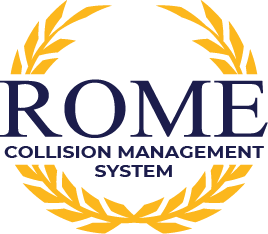
Welcome to our comprehensive guide on becoming a top-producing collision shop estimator! In the fast-paced world of automotive repairs, the role of a collision shop estimator is integral to ensuring smooth operations and customer satisfaction. Whether you’re just starting out in the industry or looking to enhance your existing skills, this blog is designed to provide you with invaluable insights, strategies, and tips that will empower you to excel in your role. From mastering the art of accurate damage assessments to fostering effective communication with clients and repair technicians, we’ll cover all aspects of the job to help you not only meet but exceed expectations. So, buckle up and get ready to embark on a journey toward becoming an exceptional collision shop estimator!
Become a Top-Producing Estimator!
- Master technical knowledge: Gain a deep understanding of collision repair techniques, automotive systems, and parts. Continuous learning about new vehicle technologies and repair methods is crucial to stay ahead in the industry.
- Develop strong communication skills: As an estimator, you’ll be interacting with customers, insurance agents, and repair technicians regularly. Being able to communicate clearly, empathetically, and professionally is essential to build trust and rapport.
- Provide exceptional customer service: Prioritize customer satisfaction by actively listening to their concerns, explaining the repair process in simple terms, and keeping them informed throughout the process. Happy customers are more likely to recommend your shop and return in the future.
- Attention to detail: Accurate estimates are vital in collision repair. Pay close attention to the damage assessment, take detailed notes, and create precise itemized estimates.
- Use estimating software effectively: Familiarize yourself with the estimating software used in the shop (e.g., Audatex, CCC ONE, Mitchell). These tools streamline the estimating process and help maintain consistency in estimates.
- Build relationships with insurance companies: Develop strong working relationships with insurance adjusters to facilitate smoother claims processing and approvals.
- Time management: Efficiently manage your time to handle multiple estimates daily without compromising the quality of your work.
- Negotiation skills: Negotiate effectively with customers and insurance companies while keeping the best interests of the repair shop and the customer in mind.
- Upselling opportunities: Identify additional repair needs and present them to customers in a helpful and non-pushy manner. Suggesting related services can increase the shop’s revenue and provide customers with comprehensive repairs.
- Stay organized: Maintain a systematic approach to record-keeping, documentation, and following up with customers. This ensures that no estimates or tasks fall through the cracks.
- Collaborate with the repair team: Work closely with technicians and other staff to ensure a smooth workflow and to address any issues that may arise during the repair process.
- Seek feedback and continuous improvement: Actively seek feedback from customers and colleagues to identify areas of improvement. Embrace learning opportunities, attend industry workshops, and stay updated on industry trends.
- Adaptability and resilience: The collision repair industry can be demanding and subject to unexpected challenges. Being adaptable and resilient will help you navigate through various situations effectively.
